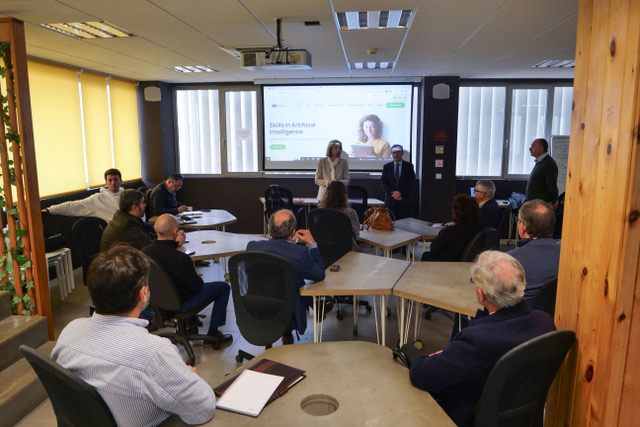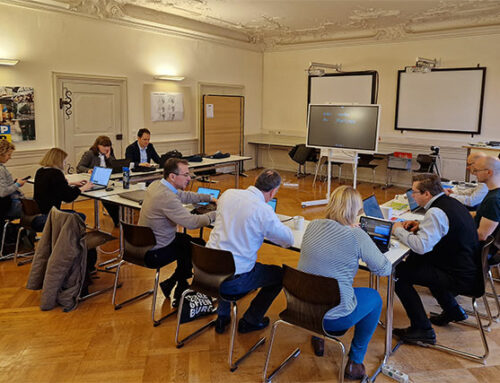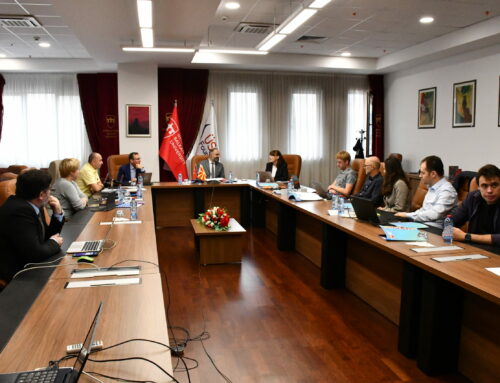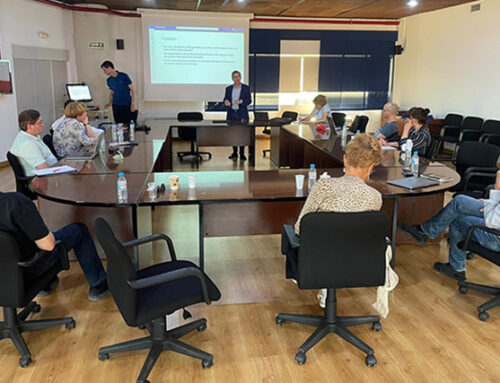Holds a closing event at the Link on strategic planning in AI aimed at business executives
The Erasmus + project ‘TSAAI’ -Transversal Skills on Applied Artificial Intelligence- to strengthen transversal skills in artificial intelligence (AI) applied in the field of higher education, coordinated by the University of Malaga and integrating seven international partners, has ended after three years of work, with a closing ceremony held in the Link by UMA building on the Teatinos campus.
The meeting, coordinated by Sergio Gálvez and Francisco López Valverde, professors from the UMA School of Computer Engineering, brought together local companies and was attended by the Deputy Vice-Chancellor for Employability, Isabel María Abad, and the Deputy Vice-Chancellor for Strategic Projects, Enrique Nava.
During this event, around twenty executives and CEOs from companies with strategic potential in artificial intelligence have learned about the project first-hand, emphasizing its transversal skills and the opportunities that this technology offers.
Competitive advantage
The event’s promoters have highlighted that artificial intelligence has already become the cornerstone of innovation and competitive advantage at a business level. “For executives, understanding how to strategically take advantage of AI is no longer an option, but rather essential to have a competitive position in the markets,” they have pointed out.
This “ambitious” project bridges the gap between technical innovation and business leadership. “Successful AI implementation requires more than just technical expertise, as it requires a comprehensive understanding of how it integrates with business strategy, organizational culture, and ethical governance,” the experts explained.
Multidisciplinary, accessible and universal
‘FUTUR-IA‘ integrates 150 independent, free, accessible and open teaching units that are structured in 8 multidisciplinary modules and include audiovisual material and practical activities.
With a universal character, it covers diverse fields of application such as science, humanities, computing, communications, industry and finance, among others. For its development, funding of more than 370,000 euros was granted by the European Commission.
Higher education and institute trainers, so that they can include it in their study plans, and those in companies, so that they can do so in their training plans, are also the target audience of this European project.




